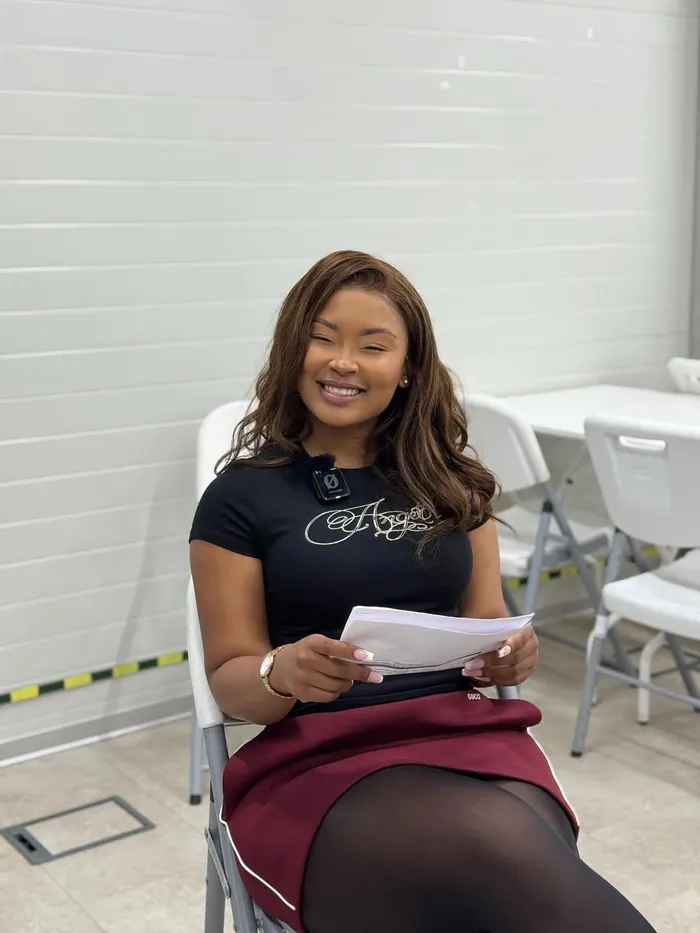
Influencer Cyan Boujee returned to L-Tido's podcast and has gotten honest about how she handled the baclash to the Russia Alabuga Start Programme.
Image: Instagram/cyan.boujee24
DJ and social media personality Cyan Boujee is still reeling from the public backlash over her involvement in promoting the Russia Alabuga Start programme.
Speaking on rapper L-Tido on his podcast, the L-Tido podcast, Cyan Boujee, real name Honor Zuma, held her first interview since the saga blew up online.
Cyan Boujee had posted a video on her Instagram addressing things while she was on her birthday trip, but she was accused of being tone deaf and not taking the situation seriously.
The DJ admitted on the podcast to not having done proper research before signing on to the campaign and revealed some of the consequences she faced.
“I lost a lot. I lost some dignity. I have a lot of anxiety. I lost my TikTok account. This is a huge learning curve for me.
“But more than anything, I’m a victim. I'm sorry for not doing my homework and not being able to represent myself properly in the situation.
“I still believe I'm a victim and I hope that everyone else learns from this situation because it was bad for everyone, my team, my family. Everyone received backlash, not just me.”
Cyan Boujee's interview on the podcast seems to have garnered some support from the public, with many saying she is misunderstood and some complimenting on her beauty.
The Alabuga start is described as a unique opportunity for young and talented people from all over the world to build a career and change their lives for the better. It is aimed at females aged 18-22 from 85 countries, with the majority being from Africa.
According to the Business and Human Rights Resource Centre, in October 2024, The Associated Press reported that women from Africa, largely Central and East African countries, were recruited via social media to work in a factory in Russia assembling drones to be launched in Ukraine.
The report also found that in the factory, the women experienced labour rights violations, including long hours, surveillance, lower wages than those promised to them, difficulties leaving the factory, restrictions on talking to the media or other “outsiders” about their work, and occupational health and safety violations, including working with chemicals that injured their skin.
Clayson Monyela, Head of Public Diplomacy at the Department of International Relations, speaking on Radio 702 with Bongani Bingwa, explained why some of these international opportunities are linked to human trafficking.
Passports are taken upon arrival, one lives in slave like conditions and they are not allowed to have contact with their family and when they do, they are placed under surveillance, essentially losing their freedom.
He shared a story of how one young woman was brought back to the country after finding out that what they were sold was not the reality they arrived at.
IOL
Related Topics: